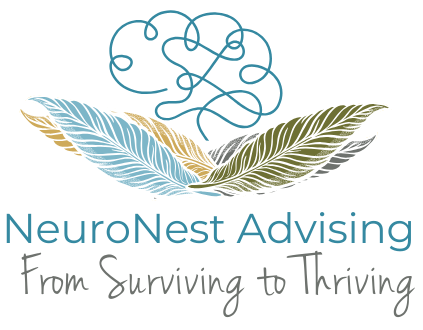If you’re anything like me, you take a lot of pride in keeping everything just so—the schedules, the meals, the routines, the emotional support, the troubleshooting, the invisible work that makes a household run. Especially as a parent of a neurodivergent child, you know that preparation and structure can be the difference between a smooth day and one filled with meltdowns and frustration.
But what happens when life forces you to slow down?
A few weeks ago, I got hit with a terrible virus. The kind that had me in bed for days, unable to do anything. My husband was out of town for work, and our usual backup—grandparents—weren’t available. It was just me, my body demanding rest, and my kids… figuring things out without me.
And something interesting happened.
The Clarity That Comes from Stepping Back
As moms—especially those of us with perfectionist tendencies—we often carry the mental (and physical) load of making sure everything gets done just right. Not because we don’t think our kids can do things, but because we want to protect them, support them, and keep the train moving efficiently.
But in my forced absence, I had no choice but to let go. And in doing so, I saw something with fresh eyes: my kids are more capable than I sometimes allow them to be.
Take my six-year-old, for example. For the longest time, when she was thirsty, I’d instinctively jump up to fill her water bottle. Not because she couldn’t do it, but because I was already moving at 100 miles per hour, so it was easier and quicker to just do it for her. But while I was sick, guess what? She figured it out. She went to the water cooler, filled her bottle, and moved on.
She didn’t need me to do it for her—she just needed the space to do it herself.
Fostering Independence or Creating Dependence?
This got me thinking about how often we, as parents, unintentionally enable our kids—especially our neurodivergent kids, perhaps because we recognize their highly sensitive nervous systems and want to protect them.
Of course, there are many things our children genuinely need help with, whether it’s navigating emotional dysregulation by co-regulating, managing executive function challenges by scaffolding, or easing transitions by preparing ahead of time. But there are also areas where they may be ready to stretch their independence, if only we step back and let them.
This doesn’t mean withdrawing support—it means shifting from doing things for them to helping them develop the skills to do it themselves. Moving away from enabling, toward fostering independence.
The Blessing in Slowing Down
If getting sick taught me anything, it’s that the most important thing we can give our children isn’t perfect execution of daily tasks—it’s a strong, loving bond (and the realization that Moms too can get sick and the world won’t end)!
When I wasn’t rushing around micromanaging the day-to-day, I had the chance to see what truly mattered:
💙 My kids still felt safe and secure, even when things weren’t “perfect.”
🌟 They discovered new abilities and took pride in their independence.
🔍 I gained clarity on what really requires my energy, and what I can let go of.
So if you’re a mom who leans toward perfectionism, I encourage you to experiment with stepping back. Not in a moment of crisis, but intentionally. Give your child the space to show you what they’re capable of. You might be surprised by what you see.
And in the process, you may just find a little more breathing room for yourself, too.


